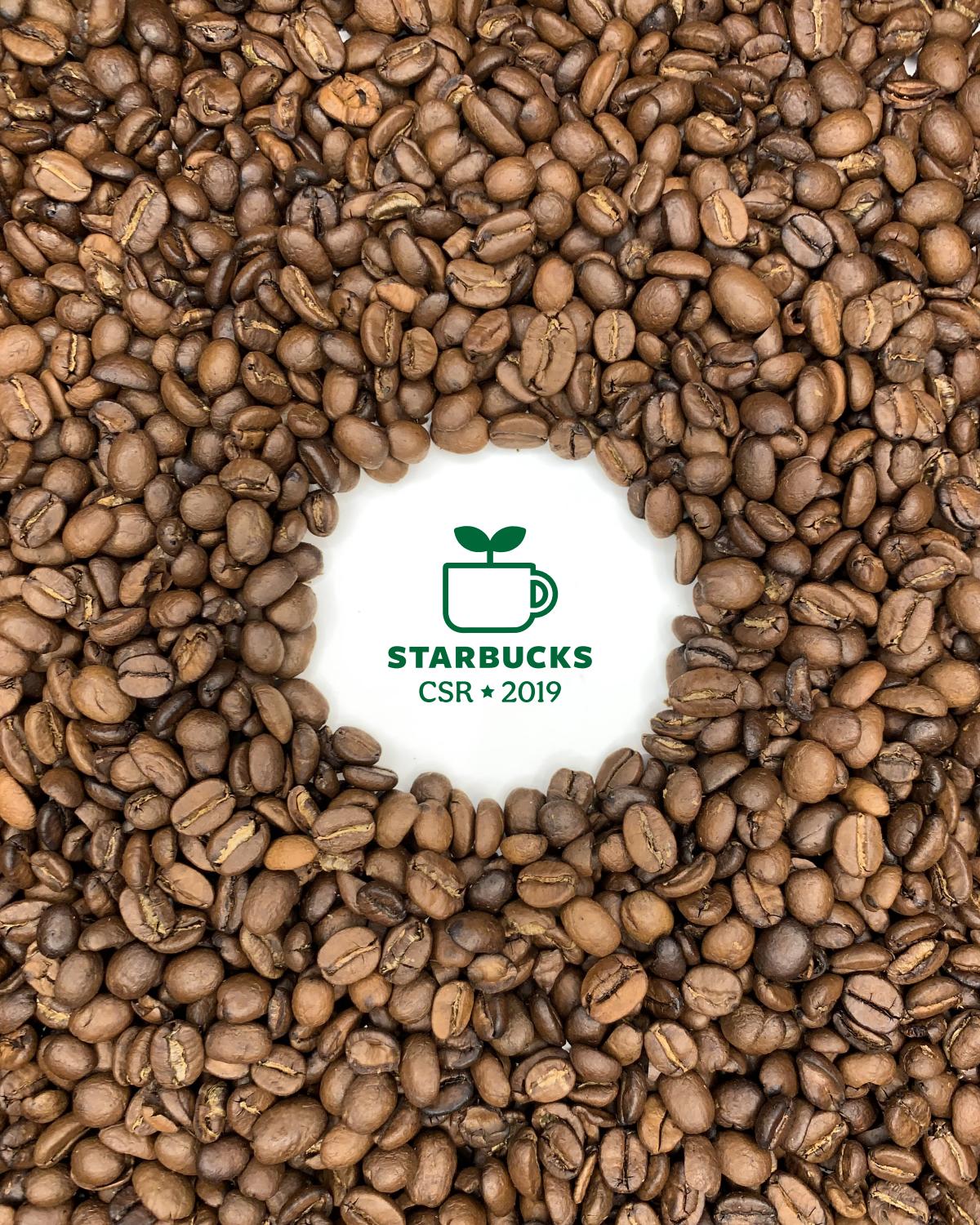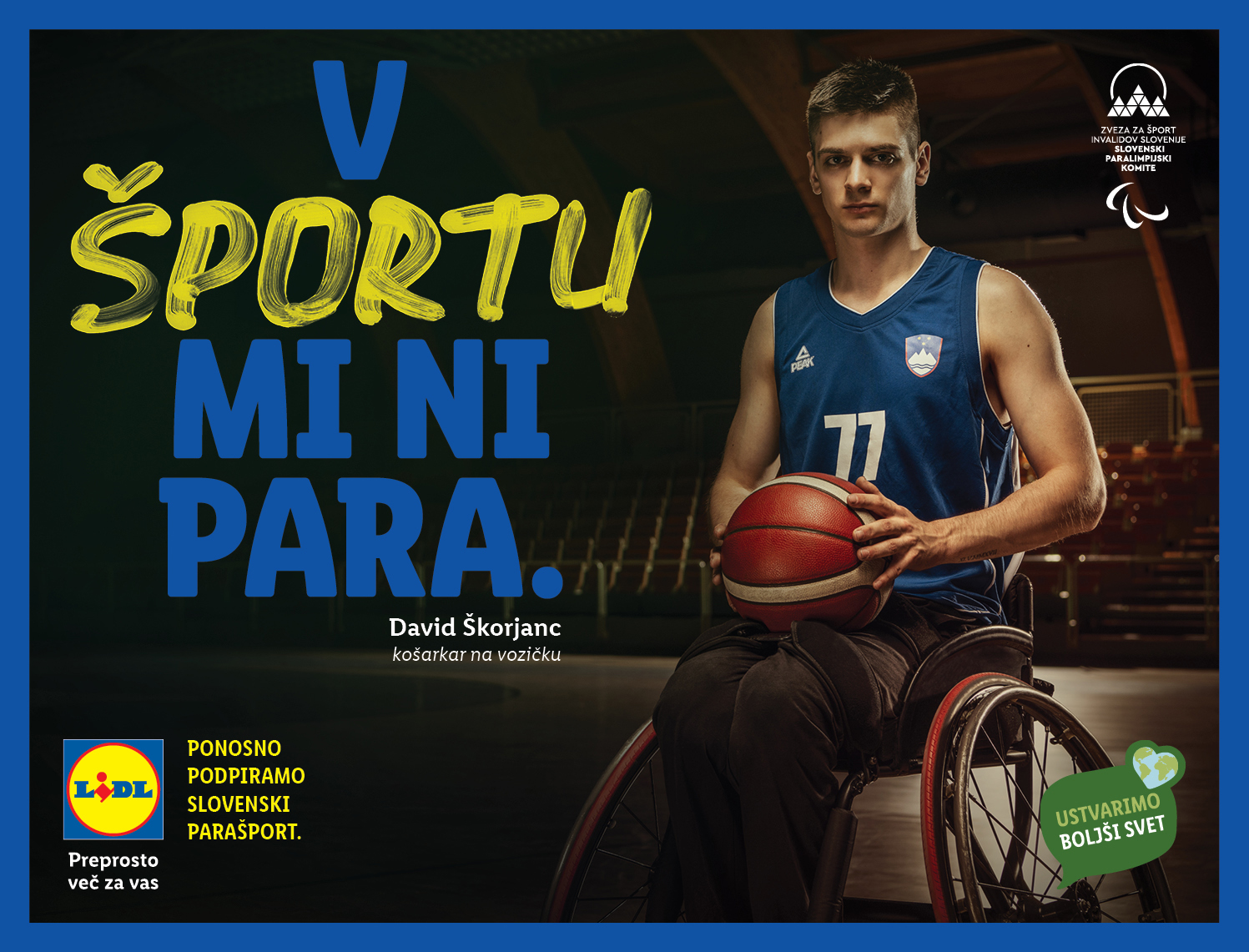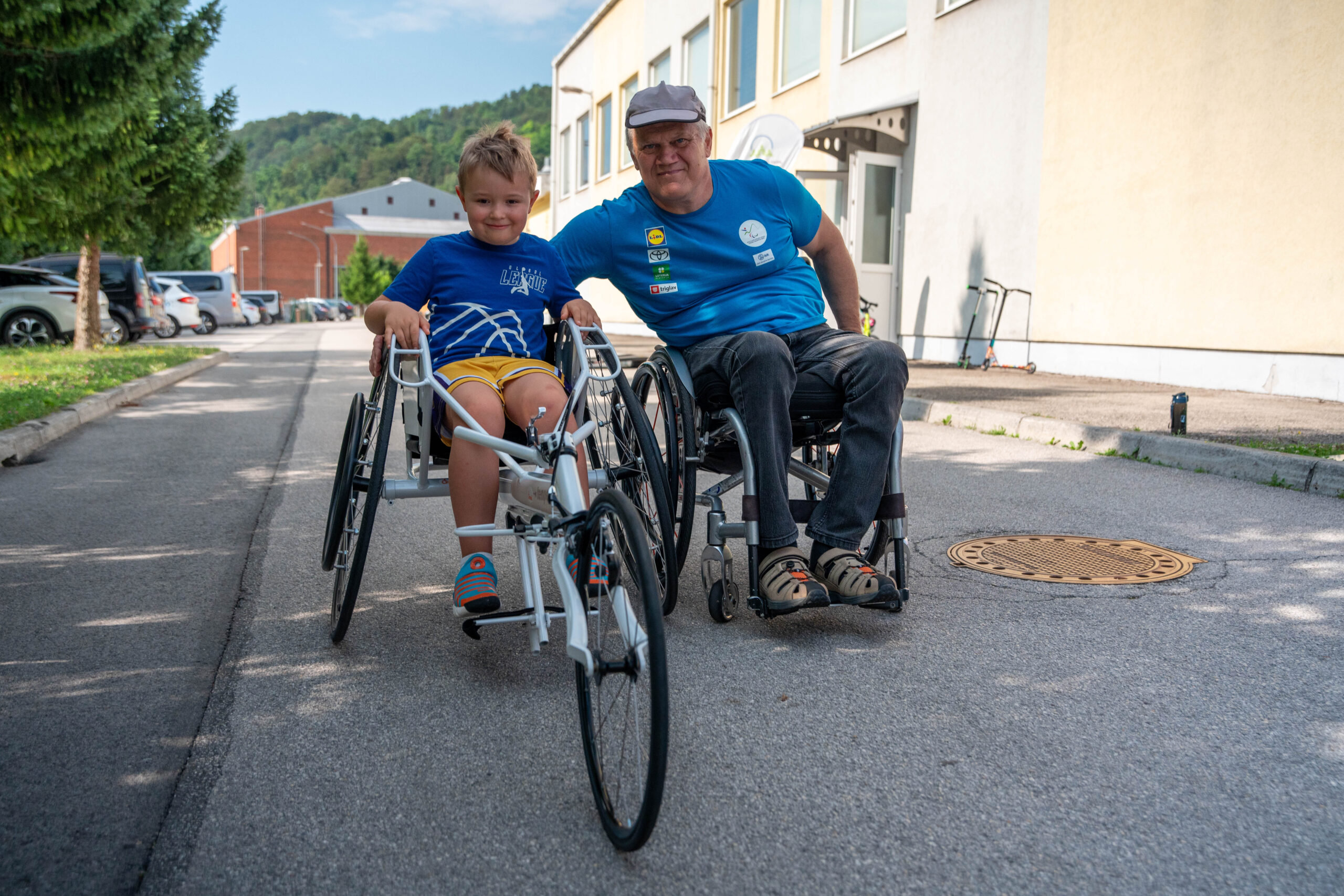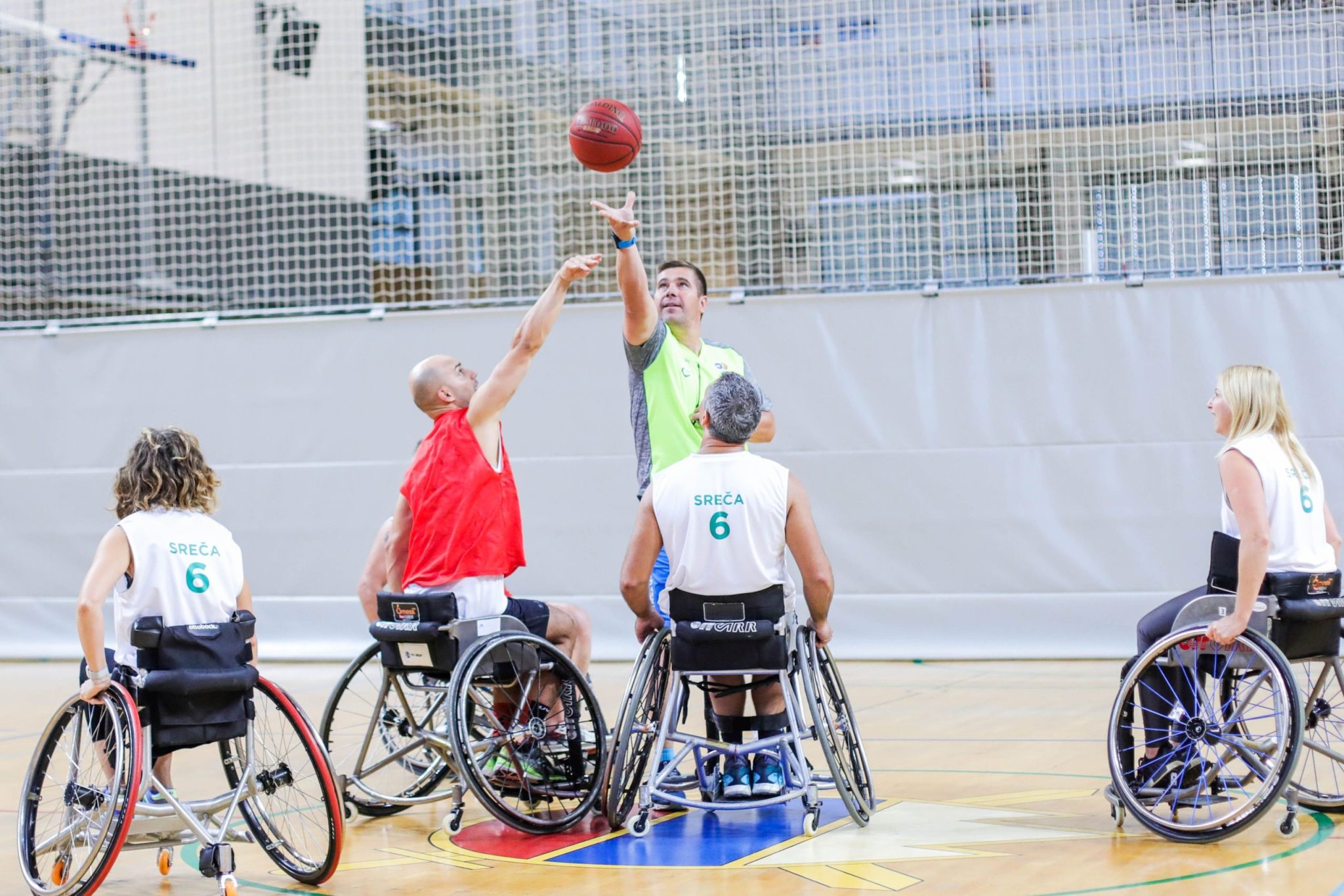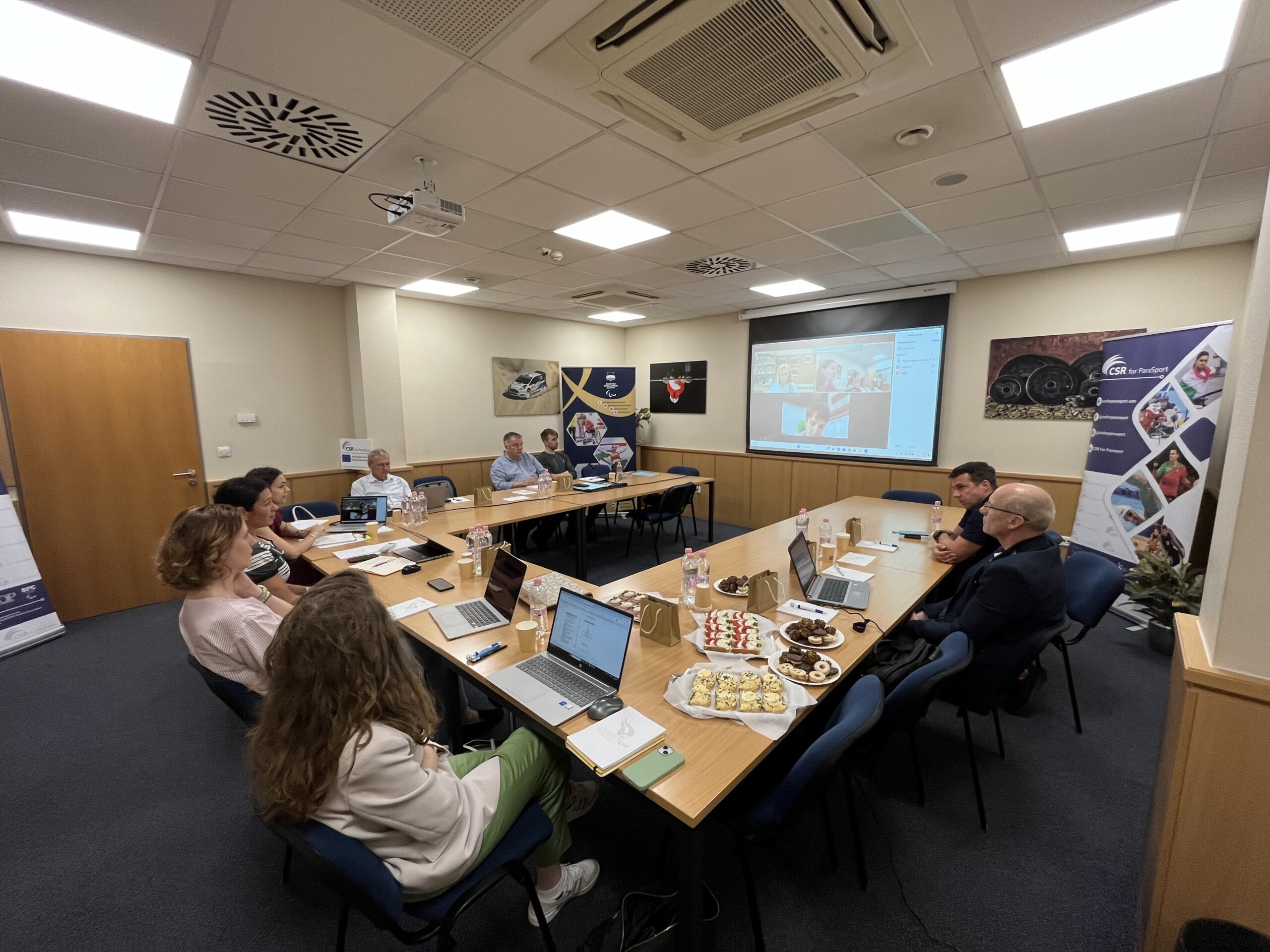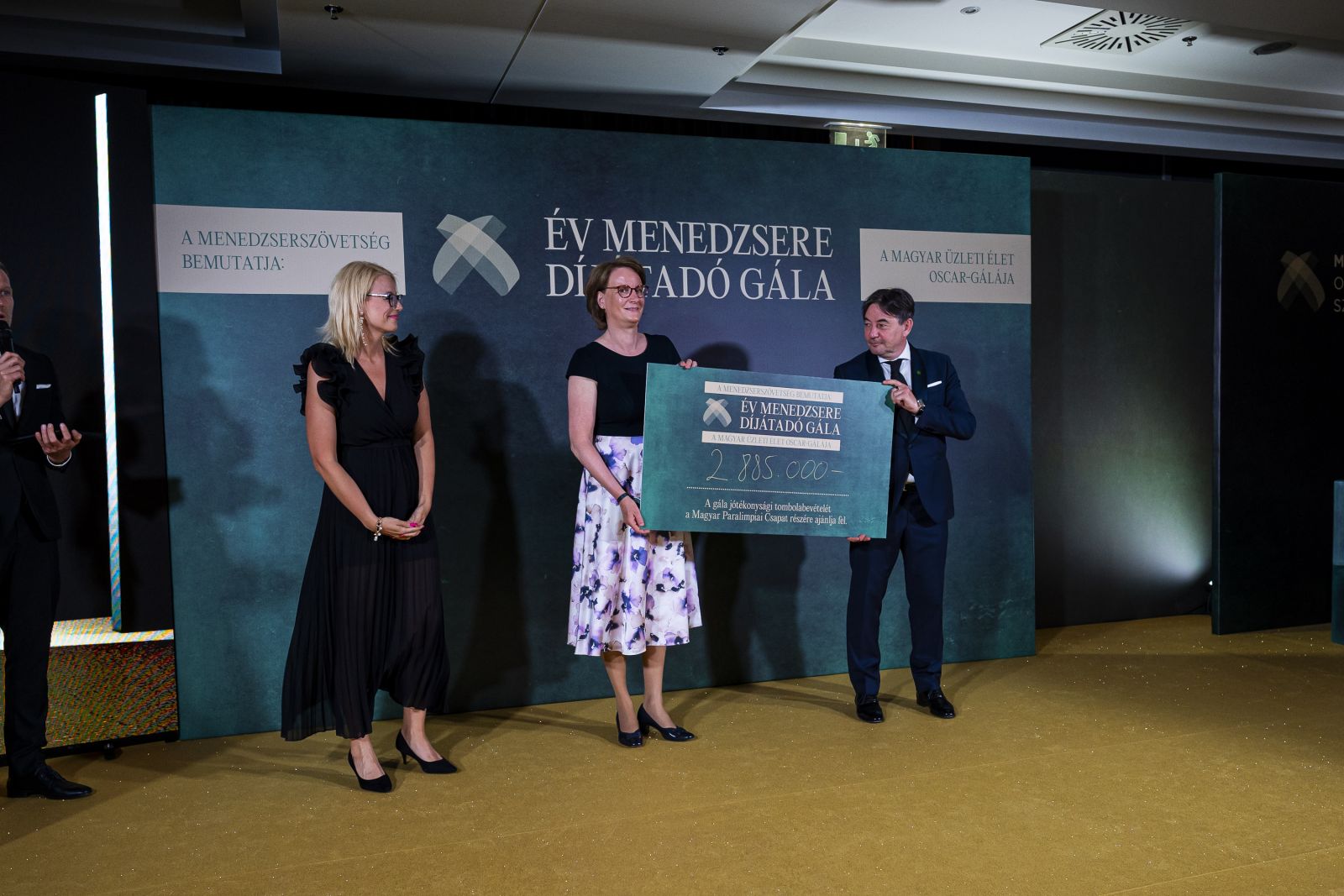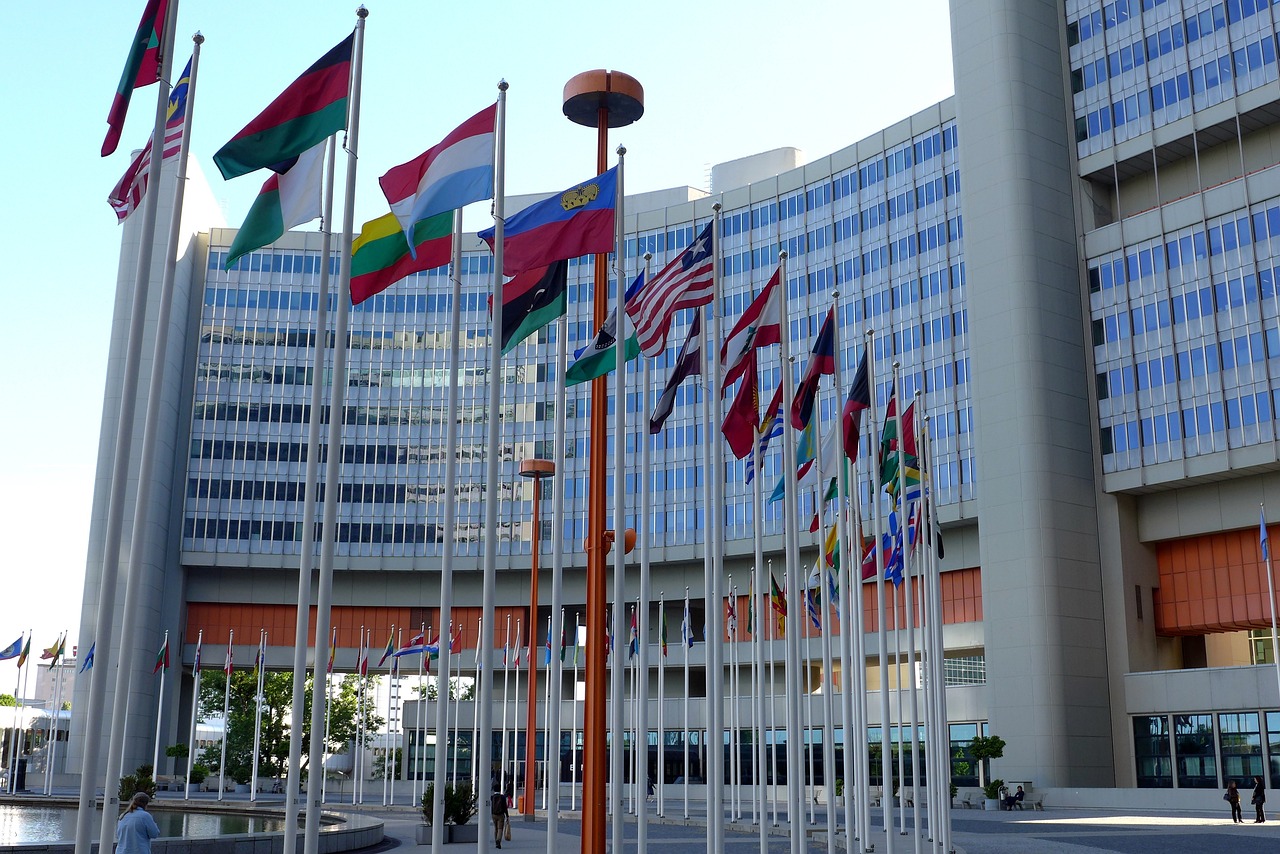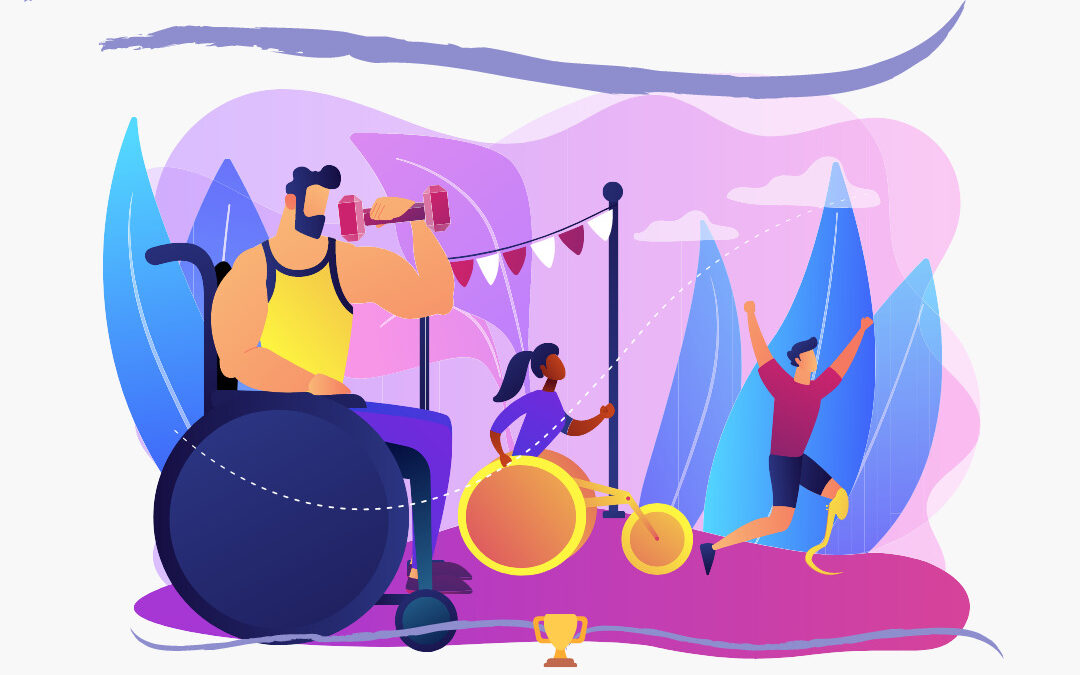On 6 May 2024, the Hungarian Sports Day, sixteen top athletes and twenty invited celebrities presented the uniforms of the Hungarian Olympic and Paralympic Team. For the opening ceremony of the Paris Olympics and Paralympics, the marching costume is designed and produced by Heavy Tools, while the sportswear is made by Adidas and Tisza, and the celebratory clothing is made with the cooperation of Roland Fashion House and Kézmű. Boglárka Telegdy-Kapás, who is traveling to her fourth Olympics, and Illés Fanni, who is now preparing to defend her Paralympic title as a mother, stood out among the models, but the singer-rapper T. Danny and the Actress of the Nation, Dorottya Udvaros also appeared on the catwalk. In addition, the representatives of the brands, the relevant sports managers, and from the sponsoring side, representatives of the Hungarian National Bank, Hungarian Post and the national lottery company (’Szerencsejáték Zrt.’) also participated as speakers.
The state secretary responsible for sports Ádám Schmidt greeted the participants of the large-scale event. ’In Hungarian sports, we strive to be the best in all areas, and this is also the case with the appearance of our athletes. The team uniform is not only aesthetic but also a symbol of pride. It shows the hard work of many years and decades, which is essential for someone to wear the national colors.’ he emphasized in his speech.
The president of the Hungarian Olympic Committee, Zsolt Gyulay, spoke about the goals of the Olympic team and announced the two captains of the Hungarian Olympic Team in Paris: three-times Olympic champion sabre-fencer Áron Szilágyi and Olympic bronze medallist swimmer Boglárka Kapás. The president of the Hungarian Paralympic Committee, László Szabó, recalled the uniforms of the old days and drew attention to the inclusive nature of sport. ’The audience of today’s fashion show was able to see not able-bodied and disabled, not wheelchair-bound and visually impaired, but proud Hungarian sportsmen and celebrities’, he emphasized in his speech.
A total of six tours were presented on the catwalks of the Várkert Bazaar event hall, where eight Olympians, eight Paralympians and twenty invited celebrities presented their uniforms. Among the Olympians, handball player Kinga Debreczeni-Klivinyi, pentathlon athlete Michelle Gulyás, wrestler Dávid Losonczi, judokas Szofi Özbas and Krisztián Tóth, and swimmers Márton Richárd, Ádám Telegdy and Telegdy-Kapás Boglárka shone on the catwalk to present the Adidas-designed sportswear, the celebratory clothes of Roland Fashion House and Heavy Tools. The representatives of the three brands – Fanny Lanctot, brand director of Adidas, Szonja Berendi, brand director of Roland Fashion House, and László Doroszlay, managing director of Heavy Tools – talked about what cooperation with the Olympians means in the life of their business.
Several of the Paralympians have already routinely moved on the catwalk, as the Hungarian Paralympic Team previously held a fashion show before Rio and Tokyo. This year, the audience was able to learn more about the Paralympic sportswear collection designed and produced by Tisza in the interpretation of athlete Zoltán Bessenyey, dressage rider Ildikó Fonyódi, swimmers Fanni Illés, Bence Iván and Bianka Pap, badminton player Róbert Kertész and fencers Anna Nádasdy and Richard Osváth. The representatives of Tisza and Kézmű, as well as Zema, which provides jewelry for models – László Vidák, the owner of Tisza, Dezső Madarász, public procurement and purchasing director of Kézmű, and Erzsébet Papp, the creative director of Zema – reported on what inspired them in a podium discussion. during the creation of collections, and why supporting Hungarian athletes is important to them.
The programme of the fashion show was also enriched by the issuance of the Olympic-Paralympic commemorative medal of the Hungarian National Bank. Vice-President of the Bank, Csaba Kandrács emphasized that ’in the spirit of equality, integration and inclusion, the Hungarian National Bank wants to display the message ‘one team – one country’ on the commemorative coin.’
Among the supporters’ representatives, Andrea Mager, the president and CEO of the national lottery company (’Szerencsejáték Zrt.’) also greeted the audience of the fashion show. The national lottery company has been a committed supporter of Hungarian sports successes since its foundation, for three decades now, and is currently a strategic partner of the Hungarian Olympic and Paralympic Committees. According to its partnership with the Hungarian Olympic Committee, it supports not only the Olympic preparation, but also the preparation for the winter and summer European Youth Olympic Festivals and the European Games. It mainly contributes to the preparation of the Paralympics by subsidising sports equipment, but the company also pays special attention to the social inclusion of people with disabilities in addition to supporting paralympics: for 20 years now, it has been operating its lottery ticket sales network exclusively for employees with disabilities, as well as – with children with disabilities in mind – participates in the creation of inclusive playgrounds.
Special thanks to all participants and members of the press for honoring the event, as well as the sponspors and supporters for contributing to the show!

